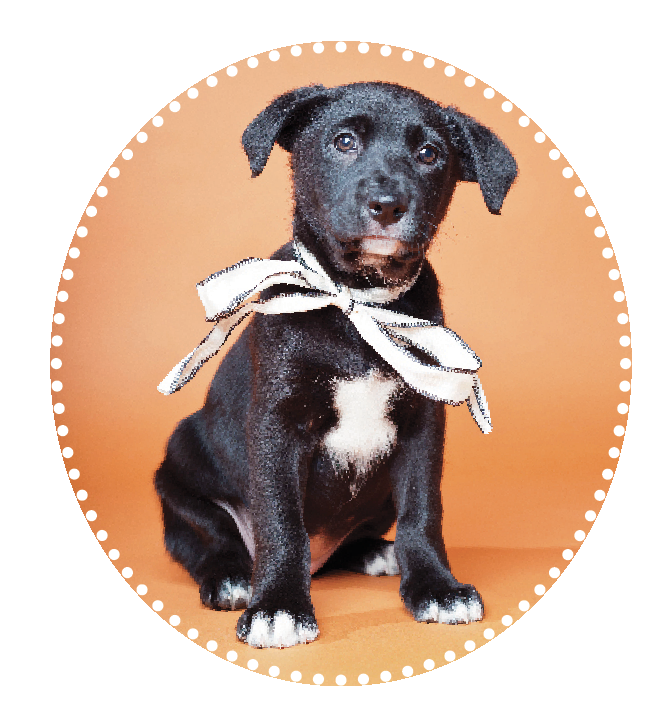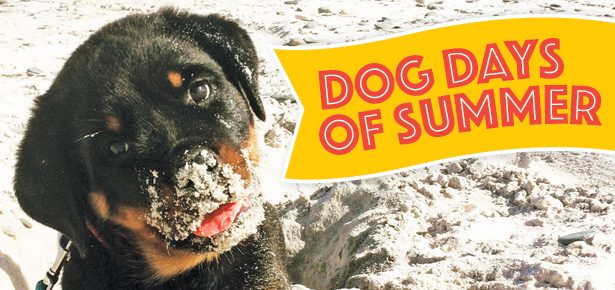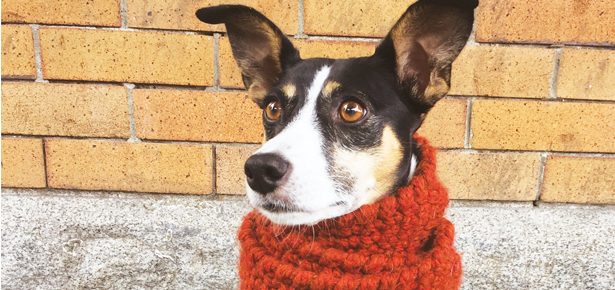

The Science of Choosing a Dog’s Name
New dog? Here's what to think about when picking a name
You have just picked up your impossibly gorgeous, fall-to-pieces lovable, rambunctious, rollicking, licking, begging, bundle of fur that will soon become your best friend.
Now comes the big question. What to name your new pup? With the slightest prompting, dog people will happily stop during their walks to expound effusively on the reasons for their dog's name. Sometimes it has to do with their dog's personality. Sometimes it has to do with the dog's provenance, either geographically or biologically, and sometimes it has to do with nothing other than a whim, a crazy flight of fancy or a lightning bolt out of the blue.
Choosing a name can set off howls of protest and sizzling debates within families. But before the choice of name sparks a duel, consider this: Alexandra Horowitz, a canine researcher and dog cognition expert who teaches psychology, canine cognition, and creative non-fiction at Columbia University (Horowitz is also the author of the excellent New York Times bestseller Inside Of A Dog: What Dog, See, Smell, and Know), notes, “For the dog, it is less about the name per se than about the way the name is said.” Yes, even the importance of your new dog's name is subject to debate.
As dogs can't talk, we can't know whether the name is more important to the human or the dog. Regardless, there is no way around it: the new canine addition to the family will need a name.
In the case of the five-year-old male St. Bernard my son and I share, the name Charlie, bestowed by a previous owner, stuck. With his pleading eyes, easygoing and affectionate (if slightly sloppy and unsophisticated) ways, he simply is a Charlie. No other name was possible, although depending on mood—his or ours—we sometimes come up with variants like King Charles, Chuck, and, my favourite, Charlie Bear, given that he falls somewhere between a miniature pony and a giant teddy bear.
However, those who have studied canine behaviour in a much more scientific way than either my son or I offer a few do’s and don’ts.
For starters, Stanley Coren, a professor emeritus of psychology at the University of British Columbia, author of several books on canine behavior, and a well-known expert on the topic (not to mention regular Modern Dog contributor), said two-syllable names are better than one because they allow for inflection, making it easier to convey emotion. You can't do much with the name Rex, for example. It is very halting. With the name Ripley, however, the “Rip” can be on a high note, and the “ley” can slide, conveying affection. Reverse the emphasis and you can indicate displeasure.
Horowitz seconds this idea: “I like two (or more) syllable names that can be spoken either ascending (rising in pitch) or descending to convey differences in urgency.”

Coren also cautions against picking a funny name like Doodles. It can seem incredibly witty at first but the joke soon wears off. Then you are stuck with it.
And God knows what you will get if you let the kids name the dog. Darth Vader? Or perhaps the moniker of a fleetingly popular cartoon character? You might want to put a “subject to approval” clause on their choice.
Coren advises changing a dog's name when the dog is overcoming some behaviour problems or moving from a difficult home. “You want nothing from that past to be part of the dog's life anymore. That includes the name.”
If there are a number of dogs in the house, which happens to be true for Coren, in addition to their specific names, you may want to come up with a common, generic name so they all come when you want to call all of them. In Coren's case, that group name is “puppy.” He knows of an owner with miniature female Poodles who calls them “ladies” and of a retired army major who calls his dogs “troops.”
But like any dog owner, Coren happily deviates from arcane scientific talk to discuss the personal naming of his dogs. His wife named the latest addition to the household pet stable “Ripley,” complying with Coren's requirement that it be a two-syllable name preferably starting with “R” which is distinctive from the “D” sound at the start of his other two dogs' names. Why Ripley? He was named after the famous Ripley's Believe It or Not! collection. Coren's wife simply couldn't believe she was allowing her husband to get a third dog.
Horowitz said when she is asked for advice on naming a dog, she has to admit there is no hard science behind her recommendation.
“That said, I advise that it be an easy-to-pronounce name that you don't mind saying over and over again,” she wrote, pointing out that a name is only useful if it is said out loud.
“It should be distinguishable from the other words that the dog might overhear.” For example, “a dog named 'doggie' is not likely to get clear signals about when he is being talked to.”
Horowitz's basic rule of thumb is to avoid any name that you don't want to say out loud. And whatever you do, “don't name your dog 'dog.' They deserve better than that.”
Additionally, I would suggest there are some circumstances where names are to be avoided at all cost. If you own a breed of dog that has a reputation for aggressive behaviour, steer clear of a name like Killer. That would only serve to strike added terror into those already wary of your dog’s breed.
To complicate matters, there is a distinction between a purebred dog's official kennel pedigree name, which can be outrageously formal or pompous, and his “call” name, the one used by the dog’s family to get his attention.
The registered kennel club name is sometimes prefaced with the name of the breeder's kennel name, which in highly respected breeder Richard Paquette's case is Wenrick. So his dogs are registered with names like Wenrick's Miss Molly or Wenrick's Rainbow.
There is often an association between the kennel club name and the call name. For practical purposes, Wenrick's The Impeccable Miss Molly is apt to be shortened to Molly. But sometimes registered kennel names are best shed entirely when adopting call names. You would hardly want to be at the dog beach shouting out Wenrick's Simply Justified or Excalipur Braveheart when you want your dog to come.
Just as popular children's names come and go, so do dogs' names.
With the charisma of Canada's newly elected Prime Minister (featured in Vogue, no less), you might begin to find a lot of dogs named Justin, or some variant thereof, just as the 1980s saw an uptick in dogs named Diana after the popular princess.
Just about everywhere Coren looked, he found plenty of male dogs named Max, Jake, and Buddy. The same held true for the female names of Molly, Bella, and Maggie. As it turns out, Charlie is number six on Coren's list of most popular dogs' names.
So although we broke a few rules by adopting a human name and by failing to change his name after we rescued him from questionable circumstances, maybe we didn't do so badly after all. All those dog owners can't be wrong, can they?
Besides, with his drooping eyes, shaggy fur, and cuddly ways, we could never saddle him with a registered kennel name like Endeavor Bartholomew. And he's simply not a Winston or a Zeus or a Bentley. He is Charlie, pure and simple, a perfect name for the best dog on earth.
Join the newsletter and never miss out on dog content again!
"*" indicates required fields
By clicking the arrow, you agree to our web Terms of Use and Privacy & Cookie Policy. Easy unsubscribe links are provided in every email.





